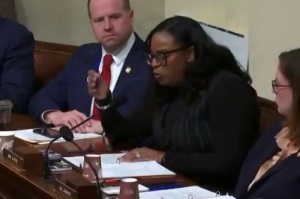Doubting Dennett
Last year it was Sam Harris's The End of Faith; this year it is Daniel C. Dennett's Breaking the Spell: Religion as a Natural Phenomenon that sets out to rally the anti-religious, and serves to fire up some defenders of religion. Neither lacks notice. Reviewers and editorialists savor conflict, some academics critical of religion sharpen their knives, and many preachers enjoy having sermon topics hand delivered to their pulpits. Next year we will repeat the cycle with someone else's book, as Americans have done since the middle of the eighteenth century.
Exactly fifty years ago I was writing my dissertation on the subject of how "infidels," "freethinkers," "atheists," etc. made use of religion, and how religionists of several sorts made use of them and their tracts and blasts. I have kept on tracking the partisans, noting along the way that the Harrises and the Dennetts do the faithful a favor. Instead of being indifferent, as most self-described non-religious scholars tend to be, they find faith important enough to oppose it. One can make the case that their opposition is helpful. It is easier to sneer back at a sneer than to effectively shrug off a shrug. A-theistic thought, Feuerbach- and Nietzsche-style, is quickening and, with its vital criticism, can encourage reform.
Meanwhile, the religious who get suckered into making emotional responses might take comfort from the knowledge that few people "lose the faith" because of books like these. Many of the religious, as they face their own doubts, show awareness of the faults in religious history and flaws in the communities of faith they themselves profess, and have thought of and faced up to all of these. I've never seen a partial percentage point of a blip downward in trends of support for religion in the face of "outsider" attacks.
Little of what I have written is fair to Tufts University professor Dennett, who makes his case for questioning all religion from the viewpoint of evolutionary biology. It is true that the neurosciences today pose more profound and disturbing questions than Darwinian evolution ever did. "God" reduced to something in the genome or "mysticism" to nothing but neuron firings in the brain produce real challenges, some of which Professor Dennett, albeit naively, furthers in his argument. I don't want to be a sneerer (William Paley: "Who can refute a sneer?"). I do want to tell what I took from a reading and from some reviews. For example, Leon Wieseltier, who savages the book in the New York Times Book Review (February 19), shows that Dennett flubs the case for reason, which he rather strangely defines, and whose backfiring on him he does not notice.
Dennett—here's where naivete comes in—wants religion to be studied just like every other phenomenon can be studied, namely "objectively." He seems unaware of the ways scholars in many disciplines question "objectivity," how many students of religion are aware of "hermeneutics" in ways that he is not, how "phenomenologists" among them learn to bracket their own commitments when studying something complex.
Criticism from within religious communities for two centuries, or maybe twenty, has shaken the foundations of the faiths that it often purifies. Maybe next year's critical sensation will show awareness of the kinds of criticisms that have been going on for a long time—never "objectively."
For Further Reading:
For those who would like a succinct summary of Dennett's proposal, M.E.M. suggests "Common-Sense Religion" by Daniel C. Dennett, in the Chronicle of Higher Education (January 20).
This article originally appeared on February 27, 2006.
_________________________________________________
Martin E. Marty's biography, current projects, upcoming events, publications, and contact information can be found at www.illuminos.com. Original Source: Sightings – A biweekly, electronic editorial published by the Marty Center at the University of Chicago Divinity School.



























